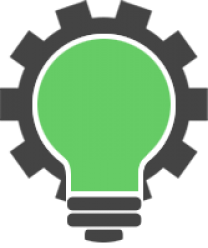It was a bright sunny day. Sitting at my birch wood table overlooking the back yard, I could the see the light streaming in to the kitchen. I remember the time of day, it was just about 11am, as I sat coding on my laptop.
I felt a sense of urgency to push code.
But a cloud began to form in my mind as I strained to make sense of the screen. It wasn’t that it was complicated. I had experienced small moments like this numerous times before. Usually it followed long stretches of coding, often many days in a row. So assuming I needed to rest my mind for a minute I looked away to give myself a few seconds of rest. Looking back at the code the fog returned. Again I took a break. I remember waiting exactly 5 minutes. That should be plenty of time. But the fog became worse. Within minutes it was like I was looking at greek. I couldn’t make sense of it.
That was 7 years ago. And I’m pleased to say I’ve been symptom free for about 6 weeks.
If you’ve faced this type of scenario I’m happy to say that it’s completely possible to recover from burnout. Commonly referred to as Brain Fog.
There isn’t a lot of information available on burnout. When I first experienced it I didn’t know what it was. I didn’t know why I was experiencing it. In fact I felt ashamed that I was unable to perform at my usual pace and kept it secret from my business partners and colleagues. I was embarrassed, valued performance, and afraid.
I’ve since learned that burnout comes from Hyperfocus disorder. Hyperfocus is an intense form of mental concentration [1]. In my case I didn’t have ADHD, or any of the other conditions sometimes associated with hyperfocus, I simply had little problem focusing while programming. I would get into the zone even in loud, disruptive, and emotionally charged environments. I was possibly a workaholic, a habit thankfully broken because of the symptoms of burnout. Not wanting to miss the NFL Super Bowl I would sit writing our application on my computer while cheering for my team of the match. I struggled to put my tasks aside.
The brain needs rest. It’s an organ, no different to the heart or lungs. It needs time to recover from strenuous use. Something I didn’t know or understand.
Symptoms that I experienced from burnout included:
- Difficulty with memory recall. Any new information that wasn’t being used in the moment was almost immediately forgotten. While doable, this made project management challenging.
- Nausea when eating. At one point I’d eat a bite, wait until the feeling of nausea would pass, before choosing to eat another bite.
- Fogginess. This one is hard to explain, the ability to see things, but difficulty in making sense of what you are seeing. My eyes worked fine, but symbols and strings of commands weren’t instantly recognizable.
- Logical arguments became extremely strenuous. I studied philosophy at UBCO, it was effortless to string arguments together. In debate one would often think of 4 or 5 arguments simultaneously. After burnout it became difficult to think beyond a single argument.
- Hard to perform complex short-term recall. Similar to the above symptom, programming often requires holding a few thoughts simultaneously. One assembles the functions of the code in their mind prior to writing it. Then while writing code you may need to know how a module or controller works that you are referencing, remember all that occurred in the program prior to the code you are writing, and think of the possible scenarios that could occur to ensure you write bug free code. It became very tiresome to perform even the simplest of tasks.
- Strategic debate was challenging.
- Mood changes – this was subtle but I definitely noticed that some days I had to be very intentional with how I communicated with others. After mentally involved tasks I would become more abrupt and critical.
- Difficulty recalling words and thoughts. I knew I had a word or thought in my memory, but unable to access it in moments of conversations.
- Difficulty articulating thoughts. This was likely the most frustrating of all the symptoms. While I could hide the other ones behind a computer screen, as the owner of my company I needed to be able to communicate my thoughts around strategy. Unable to string together many arguments at once, it wasn’t an easy task and I left many meetings feeling frustrated.
- Simple tasks like answering emails, writing posts, or maintaining support became challenging – even draining.
Extended periods of acute awareness and hyperfocus result in long term elevated levels of dopamine and norepinephrine. Dopamine is released by the hypothalamus in the brain. It is provides you with the motivation, drive and focus involved with attention. Think of it like your “motivation” hormone. Norepinephrine (noardrenaline) is a neurotransmitter found in the brain which has very similar in structure to the hormone epinephrine (adrenaline). It is a chemical involves in wakefulness, memory, alertness and generally readying the brain, and therefore the body, for action when it is being challenged or threatened.
Another chemical released during concentration is acetylcholine (ACh). ACh, acting through muscarinic and nicotinic receptors, it enhances attentional focus by modulating neural activity across sensory, prefrontal, parietal regions of your brain. ACh helps you make sense of what you’re focusing on. “In sensory regions, such as your visual cortex which is activated when you are focusing in the visual domain, ACh acts to increase the signal relative to the noise. More specifically it increases the strength of the relevant neural signal in the visual “receptive field” which represents your point of focus to make sure it is greater than the surrounding neural signals. This helps you to label which areas of your visual field are the most important, and to inhibit nearby distractions which may otherwise disturb your attentional focus.” [2]
Dopamine and serotonin are neurotransmitters. Neurotransmitters are made using amino acids. The thyroid which releases thyroxine plays a vital role in the regulation and production of dopamine. “Thyroxine has been shown to play the vital role in the production of stomach acid which ultimately helps to increase the level of dopamine in brain” [3]. Stomach acids are used to release amino acids from protein. These amino acids are then used to create the neurotransmitters.
Also, extended periods of increased levels of norepinephrine can lead to stress. “A significant part of the damage is due to the effects of sustained norepinephrine release, because of norepinephrine’s general function of directing resources away from maintenance, regeneration, and reproduction, and toward systems that are required for active movement. The consequences can include slowing of growth (in children), sleeplessness, loss of libido, gastrointestinal problems, impaired disease resistance, slower rates of injury healing, depression, and increased vulnerability to addiction.” [4][5] Essentially too much norepinephrine puts you body into a stressed state.
Cordisol, a hormone released during anxiety and stress, in turns makes it difficult to focus and recall things.
Berkley scientists published a study showing the effects of stress on the white matter in brains.[6] In it they found that chronic stress triggers long-term changes in brain structure and function.
Sustained hyperfocus can lead parts of the brain to go dormant. Similar to tearing a muscle at the gym, a strong body can be over stressed and require months to heal. Also elevated levels of hormones associated with “fight or flight” cause the body to neglect import recovery and healing functions [7][8]. The body doesn’t like extended stress. It’s designed to survive and will do what it can to eliminate threats.
In my case a combination of extended hyperfocus, lack of exercise and an irregular sleep pattern created a threat to my body’s survival. The tragedy of errors resulted in increased anxiety, nausea, and parts of the brain being damaged.
I’ve got good news. The brain can and does recover.
One key to recovering from brain fog, burnout, and the symptoms that I described is to know there is no set time. I’ve read stories of people who have light symptoms recovering in months. Others, like myself, took many years. But I’ve remained optimistic, understanding that my mind was creating new pathways as I continued to perform my work.
In 2012 I began exercising consistently. Cycling was the first sport that seemed to mirror from a physical aspect the fatigue I experienced from a mental one. Cresting a mountain on a bicycle turned the physical pain of the climb into instant euphoria and accomplishment, which is usually followed by gratitude and awe. Today, I enjoy racing in cycling competitions. [9]
I’ve since read some fascinating studies on how endurance sports that stress the cardiovascular system actually release chemicals that not only promote recovering in the muscles but also in the brain.
Finally, I highly recommend being intentionally optimistic and grateful. It not only makes the recovery process significantly more enjoyable, but the brain is hardwired to respond to positive stimuli. Possibly there is a connection between gratitude and building a strong, healthy and resilient mind.
If you are going through the experience that I described, know that it will get better.


 Burnout is the worst. There is nothing quite like it. You go from performing at 100% to less than 50% and there is nothing you can do to boost your output. Not even caffeine helps. I remember the first time I experienced burnout. We had just attended a trade show in Toronto. The months prior to the show I worked very hard to get everything ready. I was designing the trade show booth, the signage and programming the new StreetText features. Then in the airport on the way to Toronto I got food poisoning. It wasn’t until after the trade show that I burnt out. I didn’t even understand what was happening.
Burnout is the worst. There is nothing quite like it. You go from performing at 100% to less than 50% and there is nothing you can do to boost your output. Not even caffeine helps. I remember the first time I experienced burnout. We had just attended a trade show in Toronto. The months prior to the show I worked very hard to get everything ready. I was designing the trade show booth, the signage and programming the new StreetText features. Then in the airport on the way to Toronto I got food poisoning. It wasn’t until after the trade show that I burnt out. I didn’t even understand what was happening.